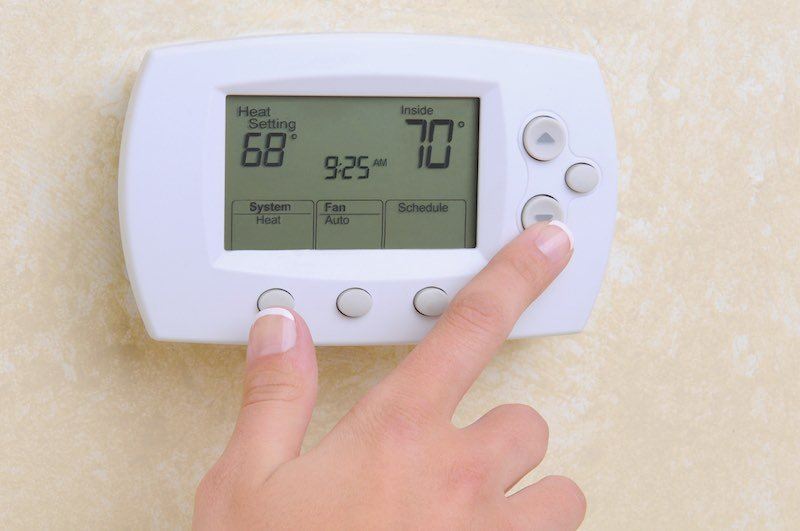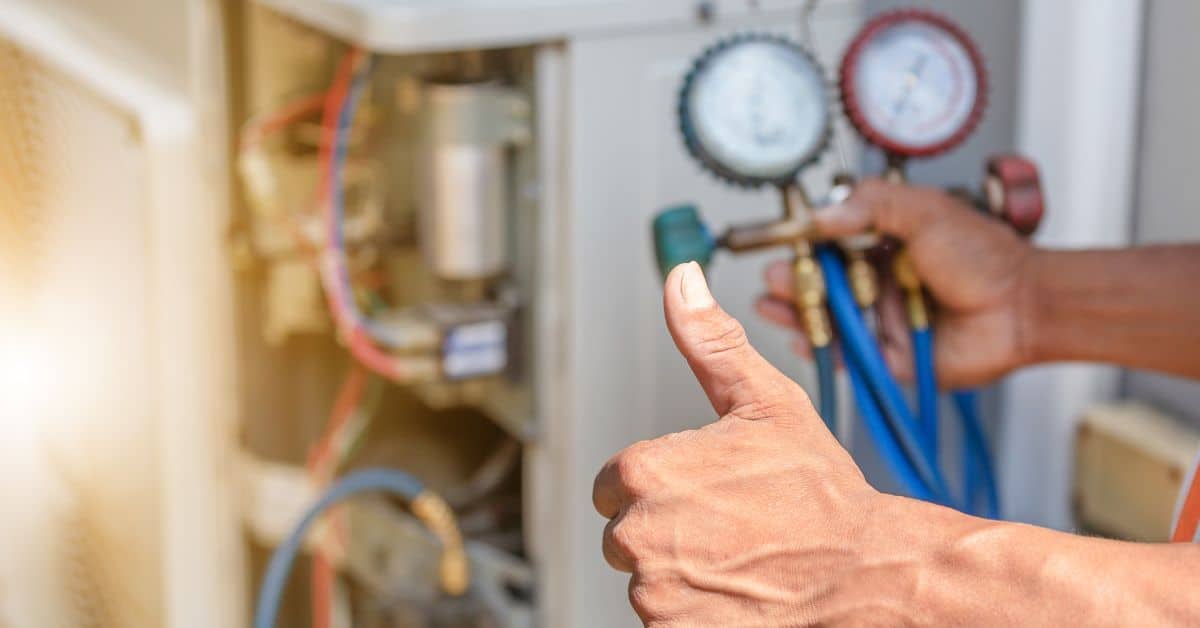Imagine this: it’s a scorching summer day, and you’re craving the cool comfort of your air-conditioned home. You step inside, expecting relief, but instead, you’re greeted by warm, stagnant air.
Your central AC is running, yet the house feels anything but cool. Frustrating, isn’t it? You might wonder what’s gone wrong and if there’s a simple fix. This scenario is more common than you might think, and there are several reasons your AC might be running without effectively cooling your home.
Understanding why can save you time, money, and a lot of discomfort. Stick around, because we’re about to dive into the possible culprits and solutions that could restore the refreshing chill you’ve been missing. Don’t let the heat get the best of you—arm yourself with the knowledge to tackle this issue head-on.
Common Causes
Is your central AC running but not cooling your house? This common issue can be frustrating. Understanding the causes can help you fix it. Some problems are easy to solve. Others might need expert help. Let’s explore the common reasons why your AC might be failing.
Thermostat Issues
The thermostat controls the temperature. If set wrong, your AC might not cool. Check if it’s set to ‘cool’ mode. Ensure the temperature is lower than room temperature. Sometimes, old thermostats malfunction. Consider replacing it if problems persist.
Refrigerant Levels
Refrigerant cools the air. Low levels mean the AC can’t cool properly. Leaks often cause low refrigerant. Detecting leaks needs professional help. Regular maintenance can prevent refrigerant issues.
Blocked Air Filters
Air filters trap dust and dirt. Clogged filters block airflow. This makes the AC less efficient. Replace filters every few months. Check them often for dirt buildup. Clean filters improve cooling and air quality.

Credit: www.protechac.com
Troubleshooting Steps
When your central AC is running but not cooling, it can be frustrating. Before calling in experts, try some troubleshooting steps. These steps might help identify the problem. They are easy and often fix minor issues. Follow these steps to get your AC cooling again.
Inspecting The Thermostat
First, check your thermostat settings. Ensure it is set to cool. Sometimes, it might be set to fan mode. This can make the AC run without cooling. Also, check the temperature setting. It should be lower than the room temperature. If not, adjust it accordingly. Finally, replace old batteries if needed. This can affect the thermostat’s performance.
Checking Refrigerant Levels
Refrigerant is crucial for cooling. Low levels can stop your AC from cooling. Check for any leaks in the system. Leaks can cause refrigerant loss. If you suspect a leak, call a professional. They can safely handle refrigerant issues. Avoid fixing refrigerant problems yourself. It requires special skills and tools.
Cleaning Or Replacing Filters
Dirty filters block airflow. This can reduce cooling efficiency. Inspect your AC filters regularly. If they look dirty, clean them. Follow the manufacturer’s instructions for cleaning. If cleaning doesn’t help, replace them. Clean filters help the AC work better. They also improve air quality in your home.
Advanced Problems
Central AC may run without cooling due to low refrigerant levels, dirty filters, or faulty thermostats. Regular maintenance prevents these issues. Checking the unit’s settings and airflow can also help restore comfort.
When your central AC is running but not cooling the house, it can feel frustrating, especially during sweltering summer days. While some issues are easy fixes, others require a deeper look into advanced problems that might be affecting your cooling system’s efficiency. Understanding these advanced issues can help you decide whether you can handle them on your own or if it’s time to call a professional.Compressor Malfunctions
The compressor is the heart of your AC system, responsible for circulating refrigerant throughout the unit. If the compressor fails, the refrigerant can’t flow properly, leading to ineffective cooling. You might notice strange noises, like clicking or rumbling, coming from the unit, indicating a compressor problem. Have you checked the compressor’s electrical connections? Loose or damaged wires can prevent it from functioning. Sometimes, a simple tightening can solve the issue. If the compressor is beyond repair, replacing it might be necessary. While costly, it ensures your AC returns to optimal performance.Evaporator Coil Issues
Evaporator coils absorb heat from the air in your home, cooling it down. When these coils are dirty or frozen, the cooling process is hindered. A dirty coil can prevent heat exchange, making the AC blow warm air. Regular maintenance, like cleaning the coils, can prevent this. You can use a soft brush or a commercial coil cleaner to keep them clean. A frozen coil might indicate low refrigerant levels. If you see ice forming, it’s time to check refrigerant levels and add more if necessary. Always consult a professional for refrigerant handling, as improper handling can be dangerous.Ductwork Leaks
Ductwork carries cooled air throughout your home. Leaks in the ductwork can result in cooled air escaping before it reaches your rooms. This not only affects cooling but also increases your energy bills. Inspect your ductwork for visible holes or disconnected sections. Sealing these leaks with duct tape or mastic sealant can improve your AC’s efficiency. Have you ever wondered why one room is cooler than the others? Leaks might be diverting air, causing uneven cooling. Addressing ductwork issues can ensure consistent temperatures throughout your home. By understanding these advanced problems, you empower yourself to make informed decisions about your AC system. Whether you tackle these issues yourself or seek professional help, addressing them promptly can ensure your home stays cool and comfortable.
Credit: qualityheating.com
Professional Intervention
Central AC systems can be complex. If your unit is running but not cooling, professional intervention might be needed. Technicians have the skills to diagnose and fix problems. This ensures your AC runs efficiently. Ignoring issues can lead to bigger problems. It may also increase your energy bills. Early intervention saves money and stress. Here’s when and why to call an expert.
When To Call An Hvac Expert
Your AC blows warm air. This indicates a problem needing professional help. Strange noises or unusual smells are other signs. These issues suggest internal problems. Water leaks around the unit also require immediate attention. If basic troubleshooting doesn’t work, it’s time for a professional. They have the tools to address these challenges.
Cost Considerations
Repair costs depend on the issue’s complexity. Simple fixes might be affordable. Replacing major parts can be expensive. Regular maintenance reduces long-term costs. It prevents bigger, costly repairs. Budgeting for annual check-ups is wise. This ensures your system remains efficient. Investing in professional services saves money over time.
Preventative Measures
Is your central AC running but not cooling the house? Frustrating, isn’t it? Preventative measures can help maintain its efficiency. Proper care can prevent costly repairs and keep your home comfortable. Let’s explore some effective tips and practices.
Regular Maintenance Tips
Regular maintenance is key. Check and replace air filters monthly. Clean filters ensure better air flow. They reduce strain on the system. Inspect the outdoor unit for debris. Leaves and dirt can block airflow. Keep the area around it clear.
Check refrigerant levels. Low refrigerant can affect cooling. If low, contact a professional. Regularly inspect your thermostat. Set it to the right temperature. Ensure it’s working properly.
Energy Efficiency Practices
Boosting energy efficiency saves money. Use ceiling fans with your AC. They help distribute cool air. Close blinds or curtains during the day. This keeps out heat from the sun.
Seal any leaks around windows and doors. Leaks let cool air escape. This makes the AC work harder. Consider upgrading to a programmable thermostat. It adjusts temperatures automatically when you’re away.

Credit: www.youtube.com
Frequently Asked Questions
Why Is My Central Ac Running But Not Cooling?
Your AC might have a dirty filter. It blocks airflow. Clean it for better cooling.
Could Low Refrigerant Cause My Ac To Not Cool?
Yes, low refrigerant affects cooling. It needs topping up. Contact a professional.
How Does A Faulty Thermostat Affect Ac Cooling?
A faulty thermostat gives wrong signals. It may stop the AC from cooling properly.
Is A Clogged Ac Coil Causing No Cooling?
Yes, clogged coils can’t transfer heat. This reduces cooling. Regular maintenance helps.
Can Blocked Vents Stop My Ac From Cooling?
Yes, blocked vents restrict airflow. This reduces cooling efficiency. Keep vents clear.
Conclusion
Your central AC might run, but it doesn’t always cool. Simple fixes can often solve this problem. Clean or replace filters regularly. Check for blocked vents or ducts. Ensure the thermostat is set correctly. If these steps don’t work, call a professional.
They can inspect for deeper issues. Remember, regular maintenance prevents future headaches. A well-maintained AC keeps your home cool and comfortable. Keep an eye on signs of wear. Stay proactive in caring for your cooling system. This way, you enjoy a refreshing indoor atmosphere all summer long.
